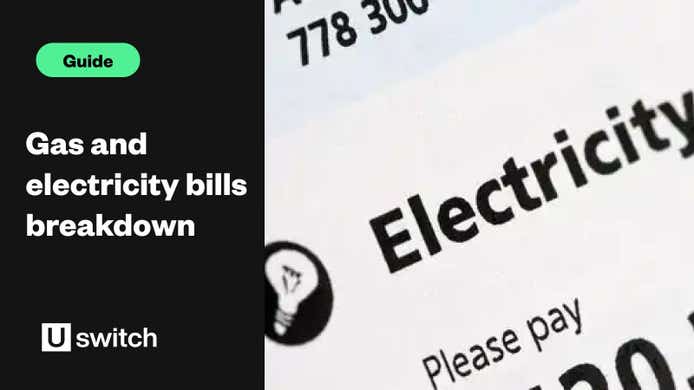Home movers
Whether you're buying, renting or relocating, this page is full of useful content to support you at every stage. From expert guides on setting up energy and broadband to practical moving tips, checklists and money-saving advice, we’ve gathered everything you need in one place to help make your move smoother and less stressful.

Moving house can be one of the most exciting times in your life, but also one of the most stressful. With so many different mortgage types, legal services, and jobs to consider, many home movers feel overwhelmed as they prepare for the big day.
At Uswitch, we’re here to help. Whether you’re a first-time buyer looking for moving house advice, a home mover looking for the best mortgage deals on the market, or a prospective mover looking for the latest news, guides, and stats, we have everything you need.

Moving home checklist
Feeling overwhelmed as you plan to move? Don’t panic. Our moving house checklist guide breaks down all the key steps for your home move into an easy-to-follow checklist that you can use to plan for the big day.
Switching providers when moving home
Looking for some guidance on switching providers when moving home? For all key utility bills, you should ideally inform your provider 28 days before you intend to move. This will give them time to cancel future payments and prevent any additional charges from your old address after you’ve moved.
Typically, when moving into your new house, you’ll be placed on a ‘deemed contract’ for utilities like gas and electricity with the providers for the previous occupants. While this prevents your utilities from being cut off, it’s unlikely to give you the best deal. So, sorting out your energy deals either before, or as soon as you move in, is a good way to save money.
Whether you’re looking to switch energy, broadband, or another service, we have you covered.
That’s why we provide comprehensive info on a range of factors related to switching providers, including:
- Switching energy when moving house
From how to notify your supplier when moving to comparing the best suppliers at your new property, and what to do during the move, this page will have you prepared for every step. Read our moving house guide
- Comparing electricity suppliers in the UK
Feeling overwhelmed when comparing electricity suppliers? This guide provides insight into all the key areas, including the cost of switching providers and what you need to do to switch. Read our comparing electricity suppliers guide
- How to switch broadband provider
Switching broadband providers can be one of the most tedious aspects of moving house. Thankfully, this guide covers all the key areas to help make this process easier than ever. Read our how to switch broadband guide
Top tips for moving house
Moving house can be one of the most stressful and exciting periods in your life. With so many elements going into moving house, from finding a mortgage deal to packing, and switching utility bills, the whole thing can quickly become overwhelming.
Uswitch has a range of helpful home mover guides offering everything you need to make your move as easy as possible. Once you’ve found the information you need, you can shop around for the best deals on key home services like mortgages, home insurance, and energy.
Whether you’re looking for advice on reducing the stress of moving house, a timeline of the moving house process, or some expert home moving hacks, you’ll find it all here.
Some of the key elements we break down in our tips for moving house are:

The cost of moving house
Struggling to budget for the cost of moving house? This guide breaks down all the key cost considerations to help you plan and budget for the big day.

Your guide to insurance when moving house
In this comprehensive guide, we break down all the key factors relating to insurance when moving house, including info on home insurance, contents insurance, and more.

Get expert broadband advice when moving house
We provide expert broadband advice to help you get set up when moving house, from how to set up your internet to advice on what broadband speed you need.
“There seems to be a never-ending list of things to do when you’re moving home, and so much of what you need to get done takes place online.
“The best thing you can do to make your move easier and help get you settled into your new home quickly is to organise your new broadband service as soon as you have your move in date. A lot of the time you won’t need an engineer to set up your service, but if you do you’ll want to book them in at least two weeks in advance.
Then you can shop for new furniture, set up your council tax, Skype with family to give them a virtual tour, or just sit down to watch Netflix after a long day of moving and unpacking boxes.”
Moving house guides for bills and tarriffs
Our top guides for switching suppliers
Moving home FAQs
How do you sort out gas and electricity when moving house?
Before you move house, you need to:
- Inform your current supplier that you are moving at least two days before your move-out date, and give them your new address so they can send you your final bill.
- Submit a final meter reading on your move-out day. If you have a smart meter in 'smart mode', this reading should automatically be submitted to you.
- Find out which energy supplier is providing energy for your new property.
- Let the new tenants know who the property's energy supplier is – even leaving a note somewhere will be helpful.
On the day you move in:
- Notify your new energy supplier that you've arrived. You'll usually be provisionally placed on a standard variable tariff.
- Submit metre readings for your new property.
After moving:
- Pay the final bill you receive from your old energy supplier (and check if you're in credit with them)
- Check if you could be on a better energy tariff, and consider switching if you can find a better deal.
Can you move your broadband to another house?
You'll likely be able to move your broadband to your new property. But it depends on whether your current provider's network is available at your new home.
The good news is that most providers are available almost everywhere in the UK, so if you're with BT, Sky, TalkTalk, Plusnet, Vodafone or others, you'll likely be able to move your contract over.
Things are a little more complicated with Virgin Media and smaller full fibre providers, who aren't available nationwide. So check if your current provider is available at your new place before you move.
Who do I need to inform when moving house?
Here's a quick list of all contacts you need to reach out to when moving house:
- Landlord or property owner (if applicable)
- House or flatmates (if applicable)
- Friends and family
- Employer
- Neighbours
- Moving company
- All of your insurers
- All of your banks and financial services, like pensions
- HMRC
- Post Office (redirecting your mail)
- Utility and broadband providers
- Local council (for updating council tax)
- GP and dentist
- Cleaners
- Subscription and delivery services
- Personal identification authorities (passport, driving licence, etc.)
- Any other account you have that has your home address
How clean is a seller required to leave the house after moving out?
As the seller, you aren't legally obligated to clean your house before you move out, but you still need to remove all of your furniture and personal items unless you've agreed to leave some of them for the new owner.
That said, if you want to maintain a good reputation with estate agents and other important contacts for the next time you move house, it's customary (and just polite) to leave the house in a clean state for the people moving in.








